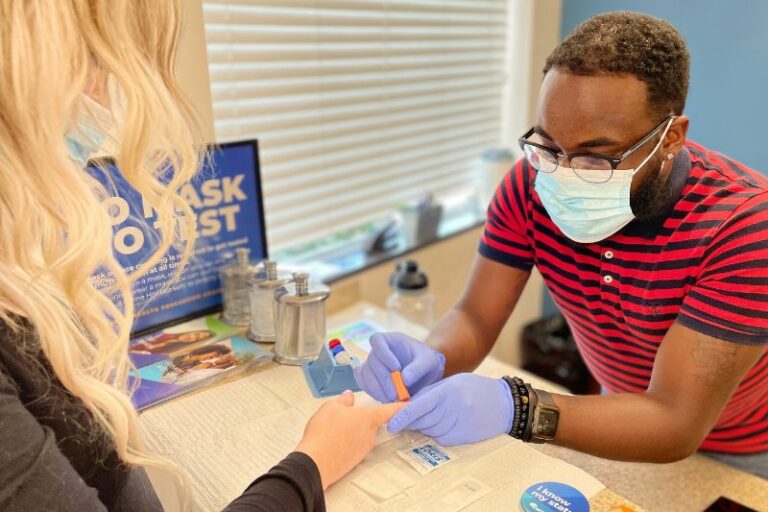Sexual health is part of being human!
Like anyone else, as a transgender person you want to feel great about your body. You want to have sex that is safe, feels good and is rewarding. Trans people are unique!
- You may or may not have had surgery
- You may or may not take hormones
- You may or may not have sex
- Who you have sex with is unique to you
Special Considerations
There are a few special considerations trans people who have sex should keep in mind:
- Taking testosterone can thin the walls of the vagina. These thin walls may be more prone to cuts, tears, sores, and other bleeding, which can increase your risk of getting a sexually transmitted infection, including HIV
- People who take estradiol and other feminizing hormones may still make enough sperm to start a pregnancy.
- People taking testosterone and whose periods have stopped can still get pregnant.
- People who take estradiol and other feminizing hormones may have trouble keeping an erection. If this a concern you have, talk to your health care provider about potentially adjusting your doses. Keep in mind, when you take a lower dose of female hormones, the changes you may want to see may take longer.

Frequently Asked Questions
What about the health of the cervix?
People who have a cervix, uterus, and ovaries are at risk for cancer.
The cervix is the opening part of the uterus that connects to the vagina. Cancer of the cervix is caused by certain types of a virus called HPV. It can be passed by skin to skin contact during sex. Ask your provider about getting the HPV vaccine to help protect you from HPV. People with a cervix may also need a Pap test. The Pap test looks at cells from the cervix to see if there are any signs of cancer. Talk to your provider about when and how often you should get a Pap test done.
Do I still need a pelvic exam?
If you haven’t had surgery, yes. Your provider will check your organs with a pelvic exam. Your provider will check the uterus and ovaries for anything unusual. You may also need further tests. Tell your provider what would make you feel most comfortable during the exam.
What about pumping?
Some people have silicone injected, or “pumped”, to get the “curvy” body they want—large round breasts, hips, and thighs. Pumping can cause serious health problems. The injected products may harden, cause pain, and travel to other parts of the body. This can lead to infection and make permanent and unwanted body changes. Many people have died from pumping. Talk to a trained health care provider about safe ways to get the body you want. If you decide to do this on your own, be sure to use sterile supplies and get your silicone from a reputable source.
What about tucking?
Tucking is a way some people with penises use to hide their genitals beneath their clothing. The idea is to gently push the testicles up inside the body and then to pull the penis back between the legs. It is all held in place with tight-fitting underwear or surgical tape.Here are some things you can do:
- Only use surgical tape. Other types of tape could peel off skin when removed.
- Cut the hair very short in the groin area, this makes it easier to remove the tape..
- Spend some time daily without tucking.
Tucking for too long can cause health problems. It can cause chafing and sores. It can also lower sperm count. Keep this in mind if you are trying to have a child.
What about STIs?
Like anyone else who has sex, trans people are at risk of getting a sexually transmitted infection (STI). People get STIs from having oral, anal and vaginal sex. You can protect yourself:
- Use a condom (internal or external) or dental dam every time you have sex. External condoms can be used on a penis or toys designed to be inserted in someone’s body. Internal condoms can be used in the anus or vagina.
- Get tested regularly for STIs and HIV. Ask your provider how often to get tested.
- If you have an STI, get treated right way and make sure your partners do too..
Portions adapted from materials from the Center of Excellence for Transgender Health.



